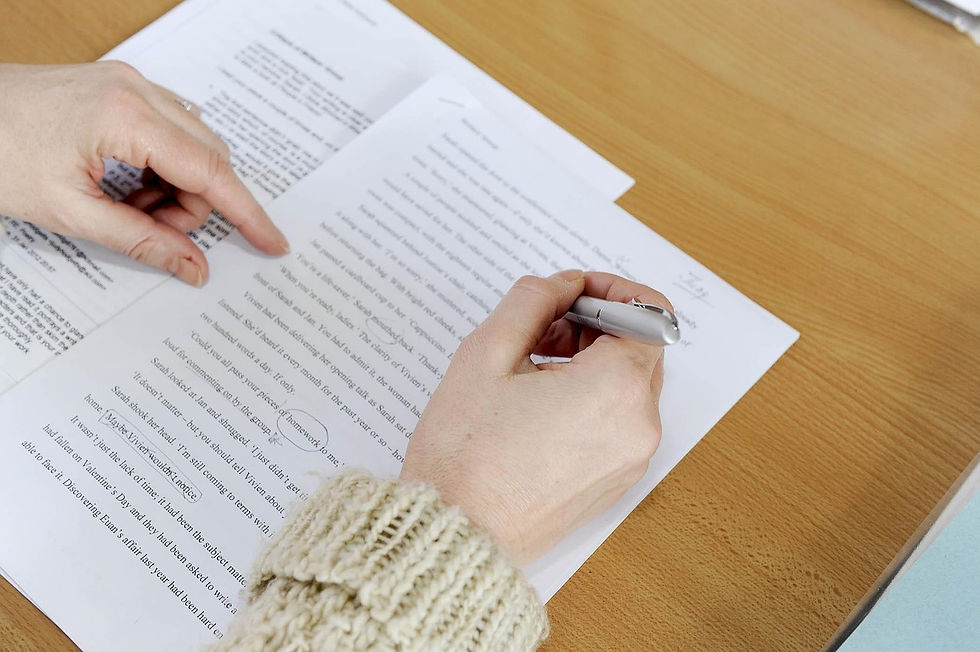Commas, and Stuff
- Yvonne
- Apr 13, 2018
- 3 min read
Updated: Oct 16, 2020

Commas... commas. The most misused punctuation if there ever was one. Actually, I think the apostrophe (') is the most misused punctuation ever. But we'll leave that for another day; let's talk about commas now.
Let's jump right in and first discuss what a comma is. According to Oxford dictionary, “a comma (,) marks a slight break between different parts of a sentence, making the meaning of sentences clear by grouping and separating words, phrases, and clauses.” We've already been taught this in elementary school, so we get the basics of how it’s used.
It gets more complicated though, when faced with different writing scenarios and we struggle to remember the complex rules of this funny punctuation in its entirety. When is it okay to not have it between sentences? Is there a cap on how many can and should be included in one sentence? Should there be a penalty for its misuse? (Yess there should!)
So, going beyond its basic, perfunctory use, I've put together 5 quickies on when and where it should–and shouldn't–be used.
Comma – 5 simple commandments
1. Don’t use a comma to separate sentences if the latter part of the sentence has a relative clause such as ‘that’.
E.g. He told me about the big cat he adopted that stole his meat. (no comma needed before 'that')
2. Don’t use commas in front of a subordinate/dependent clause[1] especially if it follows a main clause[2]. Examples of dependent clause are part of a sentence that begins with while or because.
E.g. He walked in while I was singing. (Don't insert a comma before while.)
I walked into the room because I heard a voice. (Don't insert a comma before because.)
NOTE: You should use commas after dependent clauses and words that come before the main clause.
E.g. While I was singing, he walked in.
3. Don’t use a comma to separate a subject from its predicate.[3]
E.g. Becoming a bartender when he knew he was an alcoholic was possibly one of the worst decisions Greg had ever made. (Even though this sentence is begging to have a comma inserted somewhere, DO NOT insert one!)
4. Always use a comma to separate words that interrupt a sentence.
E.g.:
To be honest, I’m not enjoying this party. (To be honest is an interrupter)
The man, in my opinion, did not make his point clear. (in my opinion is an interrupter)
5. Use a comma to separate compound sentences.[4]
E.g.: I sang the lullaby, and she fell asleep.
Commas and 'However'
What's the relationship between these two? Nothing too exciting, really. You only need to use a comma with however when however is used as a synonym for 'in contrast'.
E.g.: I see your point; however, I don’t agree with it.
NOTE: Don’t use a comma after however in this sentence:
However way you look at it, this situation cannot be reversed.
Pretty easy rules, right? Let’s see how you score on these quick exercises. Good luck ;)
Insert commas in these sentences where you see fit.
Mary realizing her bad situation tried to convince her boss to give her a raise.
A man who writes mysteries is visiting the school this week.
Bees for example have four wings.
The reason is of course obvious.
-------------
Footnotes
1. Subordinate/Dependent clause: A clause that forms part of -- and is dependent on -- a main clause. (Main/Independent clause, on the other hand, can stand by itself as a simple sentence.)
2. Main clause: A clause that forms a complete sentence, standing alone and consisting of a subject and predicate.
3. Predicate: Part of a sentence or clause that contains a verb and states something about the subject.
4. Compound sentence: A sentence containing more than one independent clause and merged by 'and'.






Comments